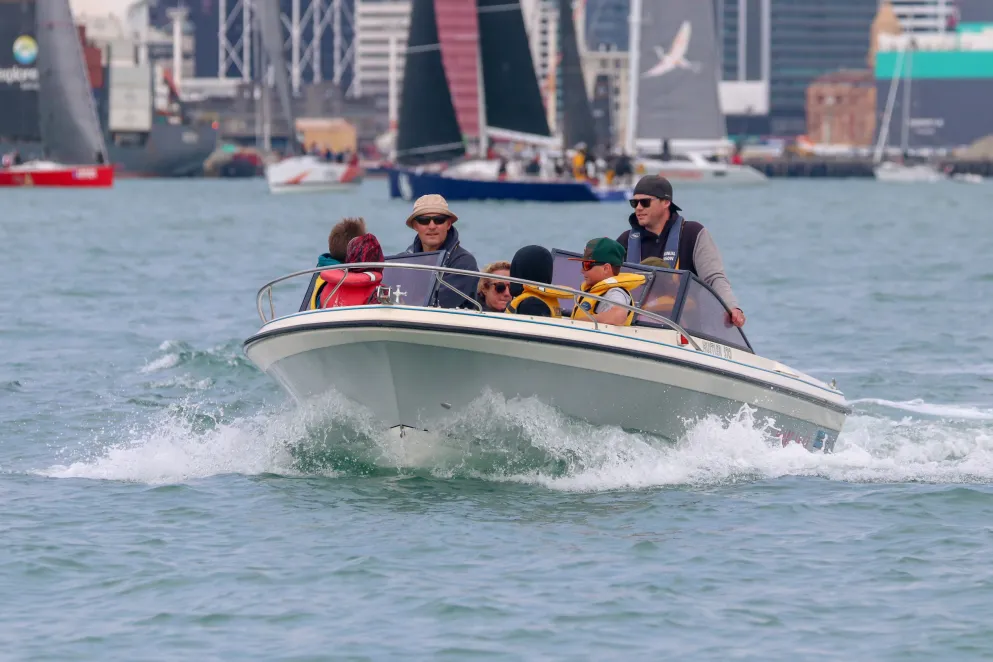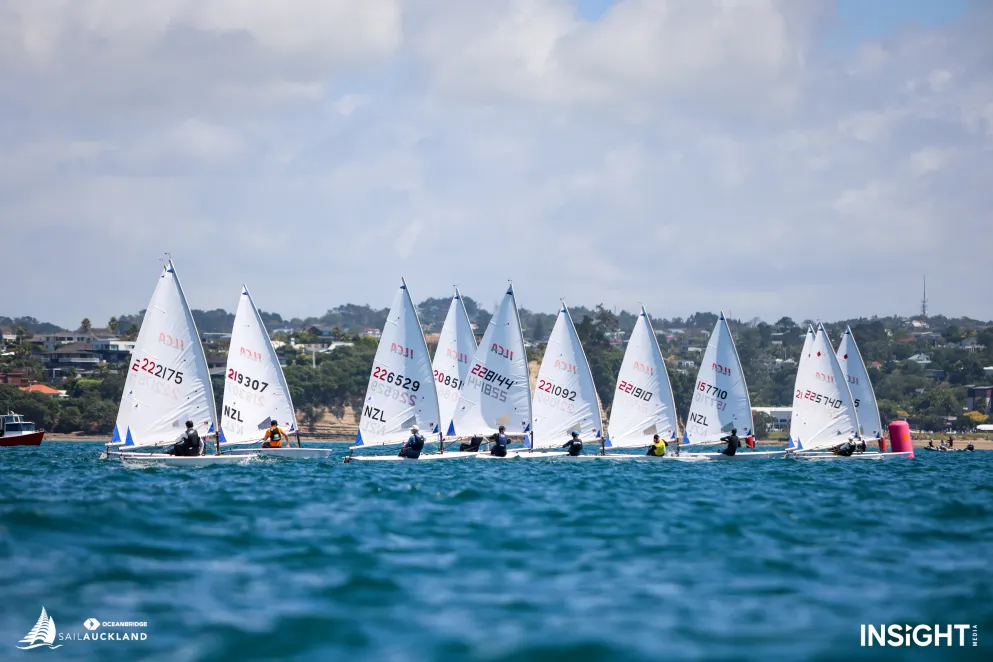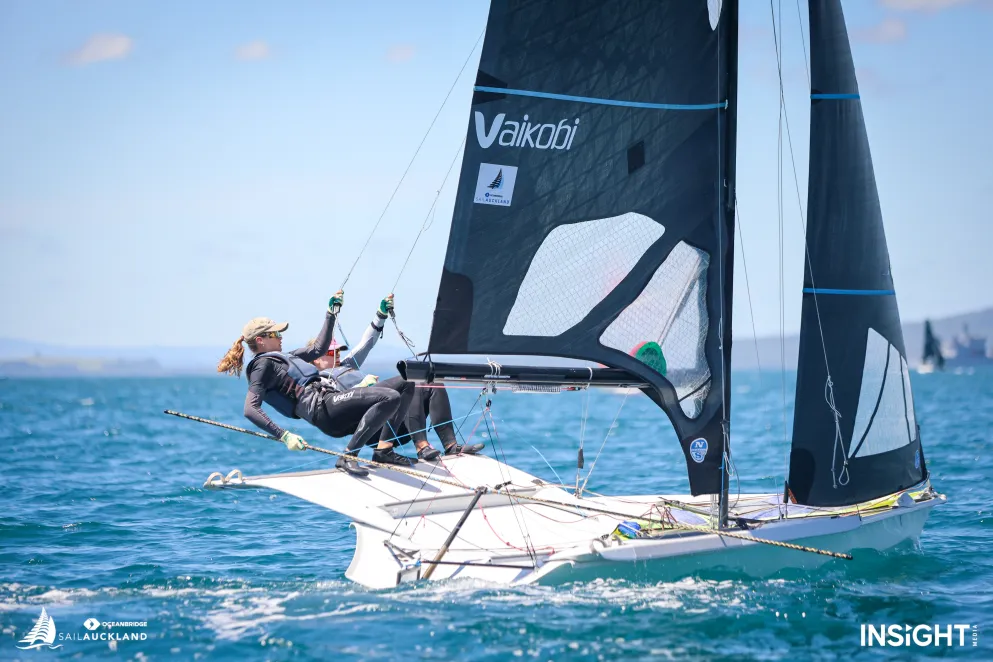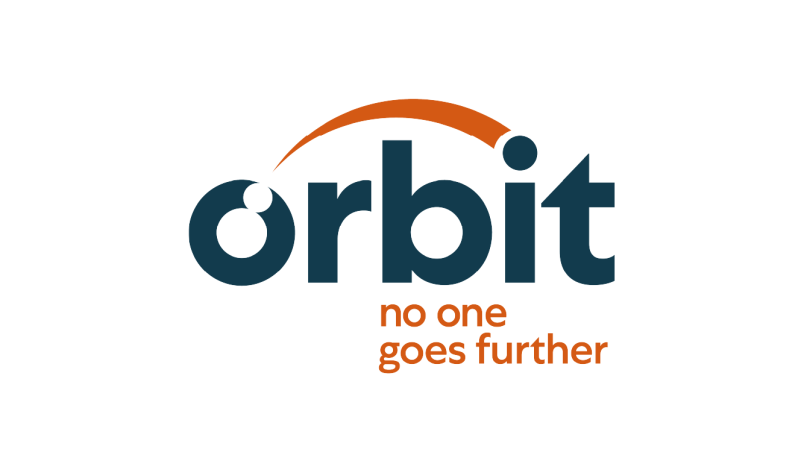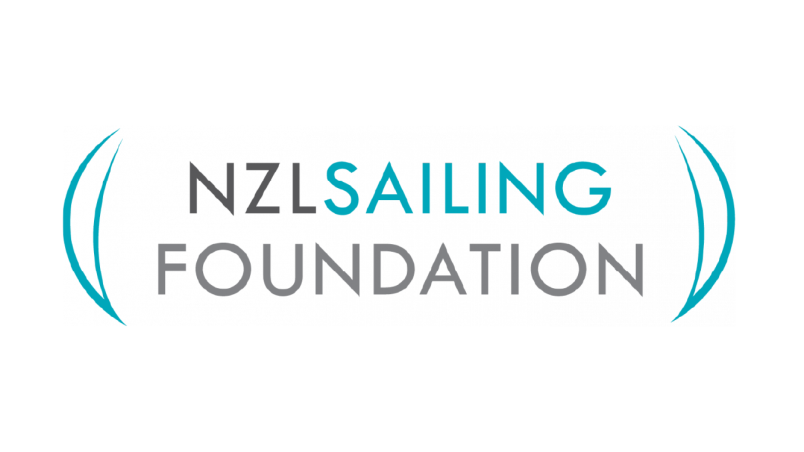Regional Roundup - changing club details
The four YNZ regional development managers take a look at what has been happening in their areas and also remind you to make sure your club details are up to date.
It's that time of the year when many clubs hold their annual general meetings, which means there are often changes to various committees.
It's important to get the club contacts right so we ask that you contact Yachting New Zealand so we can update your club's details on our website.
Have a look at your club page on the Yachting New Zealand website here and let us know if any changes need to be made. At the same time, send us an updated club photo (the higher the resolution the better). Updates can be sent to reception@yachtingnz.org.nz or your Regional Development Manager.
A number of clubs are now using generic email addresses for their officers, which is a useful approach as it means people don't need to publish their personal email address and makes it easier when the time comes to change officers.
New Plymouth Yacht Club
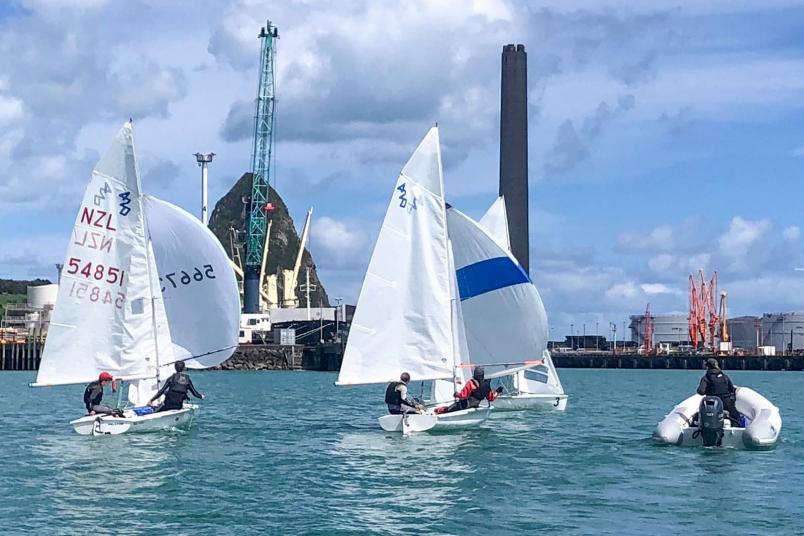
The New Plymouth Yacht Club completed an awesome 420 junior fleet racing clinic at the club last week and the five crews were lucky enough to get instruction from former 470 Olympic champion and Yachting New Zealand's new women's sailing manager Jenny Armstrong.
One day was blown out as 30 knots hit the area so the crews used this time to cover a lot of technical aspects of 420 boat handling and did some land-based technique work.
The following day was a different proposition, with a fluctuating south to south-west breeze in the morning and a steady south-westerly in the afternoon.
The group got two really productive sessions in on the water and were able to put into practice a lot of the new techniques and knowledge gained from Jenny.
A big thanks to Yachting New Zealand for funding the youth class clinic and a big shoutout to programme sponsor Aon for the support of our cool sport.
Pleasant Point Yacht Club
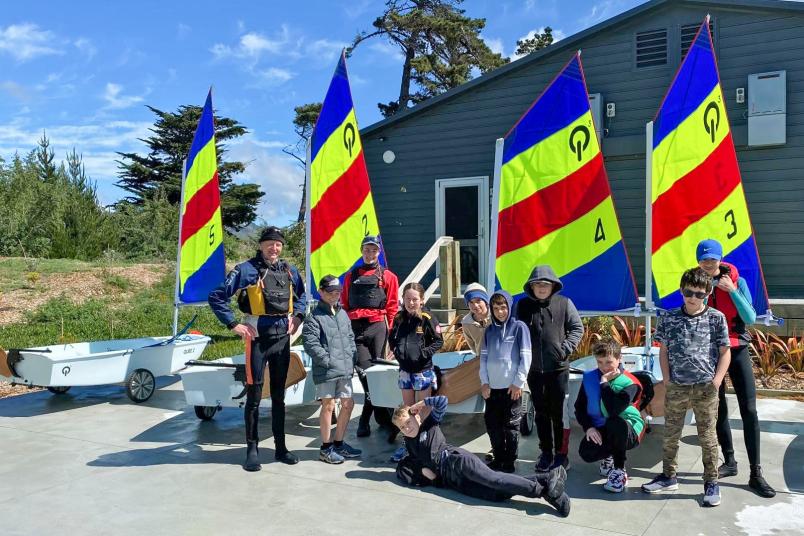
The Pleasant Point Yacht Club in Christchurch are the latest club to take delivery of new SailQube training yachts.
Having finished the club’s rebuild, complete with new boat shed, Pleasant Point are now turning their focus to upgrading their fleet of club yachts, a new rescue boat and their management systems and processes.
Six SailQubes were delivered to the club in September and immediately pressed into service in their learn to sail and school holiday programmes.
The SailQube is a rotationally molded polyethylene self-draining Optimist-type dinghy which are virtually indestructible, so ideal for the rigours of learn to sail. These six boats take the place of the club's six old wooden Optimists, which have been on-sold.
The club also launched a new website this season and, along with their Facebook page and some good print media publicity, have generated considerable interest in learn to sail from both youngsters and adults alike.
They put nine children through the school holiday programme and currently 11 adults are signed up for their course.
Club members are falling in behind the effort, helping with learn to sail tuition and crewing spots on trailer yachts, double-handed dinghies and the club’s growing multihull fleet.
Incorporated Societies Bill 2021
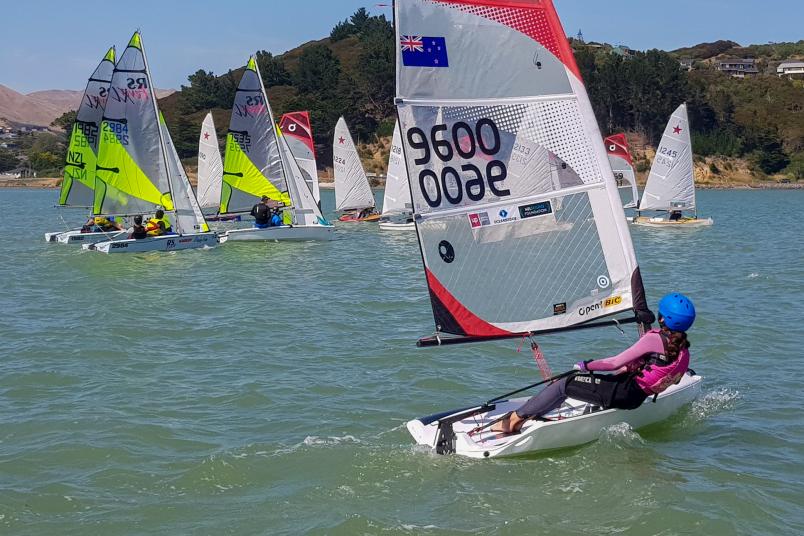
This bill has been in the pipeline since 2016 and is scheduled for its third reading later this year, meaning it could come into effect by the end of 2021.
The proposed new legislation will repeal and replace the out-of-date Incorporates Societies Act 1908.
There are several key changes that will affect clubs, but the good news is that the proposed final date for incorporated societies (including clubs) to comply is December 1, 2025.
The proposed changes will comprehensively restate and modernise the basic legal, governance and accountability obligations for incorporated societies and those who run them.
Some of the key items are: consent of members, authorised contact person, financial reporting, annual returns, alignment with other legislation, boards, committees, and officers’ responsibilities.
Yachting New Zealand will provide advice on this after the legislation comes into effect but, in the meantime, contact your regional development manager if you need any assistance.
Broad Bay Boating Club
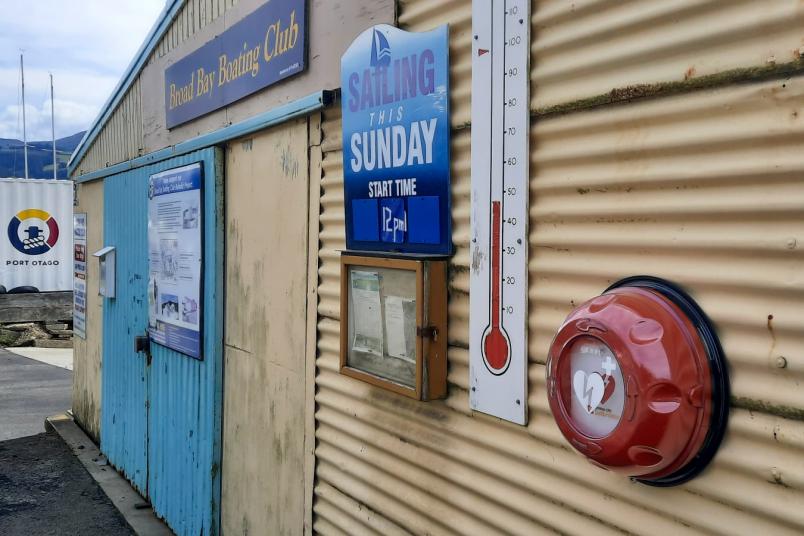
A new defibrillator (AED) has been installed on the boat shed adjacent to the beach reserve, thanks to the initiative and fundraising efforts of the Broad Bay Community Centre.
This is the latest model and is easy to operate should the need arise. It is also easily transportable and waterproof.
Emergency services still need to be called when using the defibrillator.
Auckland activity
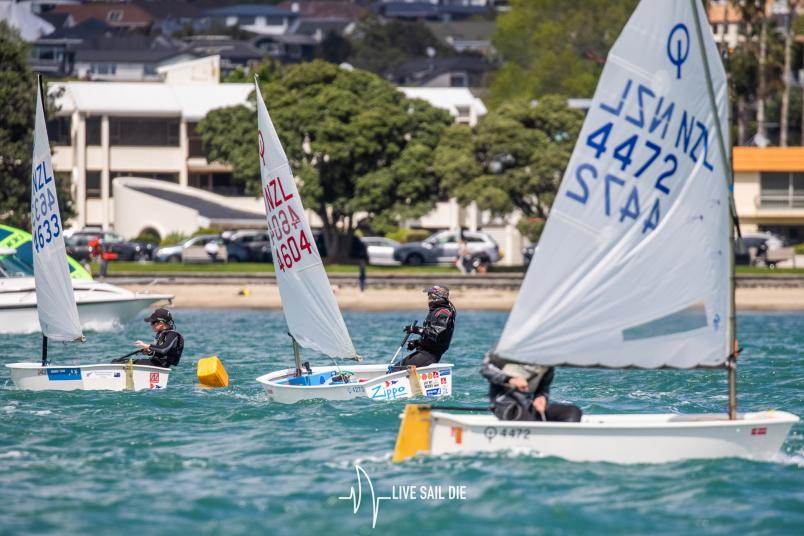
Photo: Adam Mustill / Live Sail Die.
It’s been a challenging ride for Aucklanders, and many still have a few more weeks of uncertainty ahead of them, but it's been terrific to see the return to activity on the water under the amended Alert Level 3 guidelines.
Many clubs have been running small coaching groups to adhere to the latest guidelines, which stipulate a maximum of 10 people (including the coach) and social distancing. You can find out more about it on our Covid-19 page.
Unfortunately, the rules don't allow for double-handed or keelboat sailing with anyone outside your bubble but let's hope this opens up soon.
Many others have taken up the opportunity to try windsurfing or wing foiling during lockdown and are loving it. There's plenty of reasonably-priced gear out there, so try Trade Me or the NZ Sailing Dinghies + Bits For Sale Facebook page.
Recreational boating
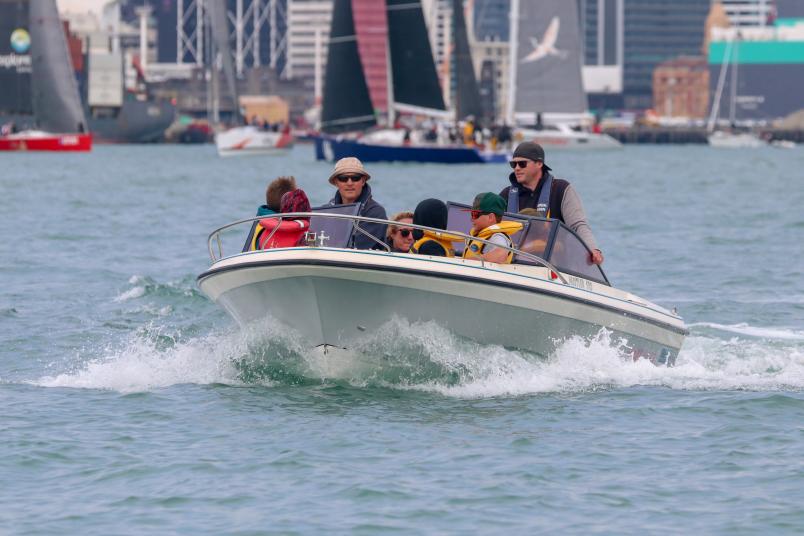
Many others have been taking to the water for recreational purposes and it pays to know the five simple rules to help you stay safe:
1. Life Jackets
- Take them – wear them. Boats, especially ones under 6m in length, can sink very quickly. Wearing a life jacket increases your survival time in the water.
2. Skipper Responsibility
- The skipper is responsible for the safety of everyone on board and the safe operation of the boat. Stay within the limits of your vessel and your experience.
3. Communications
- Take two separate waterproof ways of communicating so others can help you if you get into difficulties.
4. Marine weather
- New Zealand’s weather can be highly unpredictable. Check the local marine weather forecast before you go and expect both weather and sea state changes.
5. Avoid alcohol
- Safe boating and alcohol do not mix. Things can change quickly on the water. You need to stay alert and aware.
